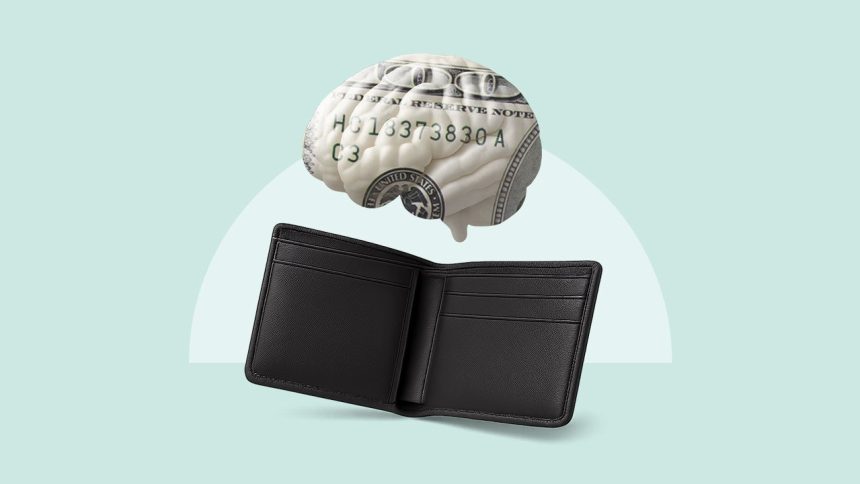Each May, Mental Health Awareness Month invites us to reflect on the invisible burdens we carry and to speak openly about what it takes to feel well. And while May has recently come to a close, this topic is still on my mind, as I’m sure it’s on many of yours.
When it comes to prioritization and paying off debt, the conversation often centers around numbers, but capacity can be just as real of a challenge. Emotional exhaustion, inherited survival beliefs and nervous system dysregulation — like chronic stress that makes it hard to focus, trust yourself or take action — can quietly sabotage even the most thorough financial plans.
I spoke with licensed counselor and manifestation coach Dr. Norma Reyes, confidence coach Sylvia Brands and life coach Asha B. Wilkerson about how healing your relationship with safety, self-trust and generational narratives can make debt payoff more sustainable and more compassionate.
Tip 1: Shift your mindset from lack to safety and abundance
The journey out of debt often begins not with action, but with regulation to create enough internal safety to make consistent financial choices. As Dr. Norma Reyes puts it, “Capacity is about your ability to take action based on our energy, emotional, and mental space.” Even if someone has the income to pay off debt, they may not possess the bandwidth to stay on plan.
That’s where nervous system regulation plays a vital role. “A regulated nervous system creates the internal stability we need to make clear empowered financial decisions,” Reyes explains. “If you’re in fight, flight, or freeze, you’re more likely to avoid looking at your accounts, overspend to soothe yourself, or feel paralyzed by fear.”
Bankrate insight
If you’re worrying about the state of your finances, you’re far from alone. Bankrate’s Money and Mental Health Survey found 43 percent of Americans say money is, at least occasionally, negatively impacting their mental health.
To shift out of scarcity, Reyes encourages clients to reframe debt payoff as a nurturing process. “Paying off debt is an act of self-love, not punishment.” One practice she recommends is acknowledging each payment with a short affirmation, such as, “Thank you money for supporting me when I needed you. I release this debt with love.” This small ritual helps shift the experience from shame to empowerment.
Tip 2: Build self-trust and emotional resilience
Debt doesn’t just affect your finances — it impacts how much you trust yourself. As confidence coach Sylvia Brands explains, “Capacity is often like trust. We don’t know what we’re capable of until it’s time.” Big financial decisions, like tackling debt, often expose how much self-trust we’re missing, especially if we’ve been operating in survival mode.
Debt can bring up layers of guilt and shame, not because the experience is uncommon, but because “money becomes a very emotional thing that we let dictate our self-worth.” Brands reminds us that confidence is a practice, not a destination — especially with money.
Keep in mind:
Just like we learned to drive or cook, we go through a period of being uncomfortable while learning to trust ourselves. Reading a book, asking a question in a live workshop — or simply reviewing your budget, bank statements and debt balances — are small steps to rebuilding trust.
And when financial mistakes happen — as they do — Brands encourages us to reframe the experience: “It wasn’t a loss, it was a lesson.” She emphasizes that “forgiveness makes for trust, and together creates radical self-acceptance.” The path to paying off debt gets lighter when you stop abandoning yourself and start practicing self-trust over and over again.
Tip 3: Heal the debt stories you inherited
Many of us carry inherited beliefs about debt, scarcity and sacrifice — stories passed down through generations that quietly shape our financial decisions. Asha B. Wilkerson, a life coach specializing in helping Black women and women of color, reminds us, “Capacity is dynamic … it changes from day to day. But to grow that capacity, we must examine what we’ve absorbed from those who came before us.”
Our greatest honoring is to make the sacrifices that people made before us worth it—and to not be tied to it.
— Asha B. Wilkerson
Life coach
Some of the beliefs or blocks that come up are extremely tied to the story of what happened before us, and we might think that we need to continue sacrificing ourselves in order to honor our story and where we come from. For people who are just one generation away from poverty, struggle may be so tightly linked with identity that even becoming debt-free can trigger guilt.
Healing begins with curiosity. “Really identify what the beliefs are and where they’ve come from,” Wilkerson suggests. Then ask, “Does this belief still apply to the context I live in today?” From there, create systems that support how you want to feel — secure, calm and empowered. “If we chase goals without knowing what feeling we’re chasing,” Wilkerson says, “we may never get to that feeling.”
Why this approach works
Debt payoff isn’t just about discipline or planning. It’s about healing. Tending to our emotional well-being is essential, especially when navigating something as complex and personal as debt. By integrating a mindset shift, emotional resilience and generational healing with practical financial strategies, we build the capacity to make consistent, empowered decisions over time.
If you notice yourself avoiding your accounts, feeling stuck in shame or overwhelmed by expectations, pause with compassion. These moments of resistance are invitations to deepen your support system. Whether that’s working with a counselor or financial therapist, joining a money-coaching program or building community with others on similar journeys, you don’t have to do this alone.
Sustainable debt payoff begins with inner safety and grows with collective care.
Read the full article here














